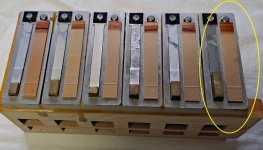Beemer
Active member
Just starting to play my 1957 Hohner Student VM which has been renovated by a pa technician. I'm hearing a strange noise after releasing one or more bass buttons. Here is a recording

 app.box.com
app.box.com
Looking for a clue before opening it up or taking it on a 110mile round trip to the restorer.
Ian

strange noise.mp3 | Powered by Box
Looking for a clue before opening it up or taking it on a 110mile round trip to the restorer.
Ian


